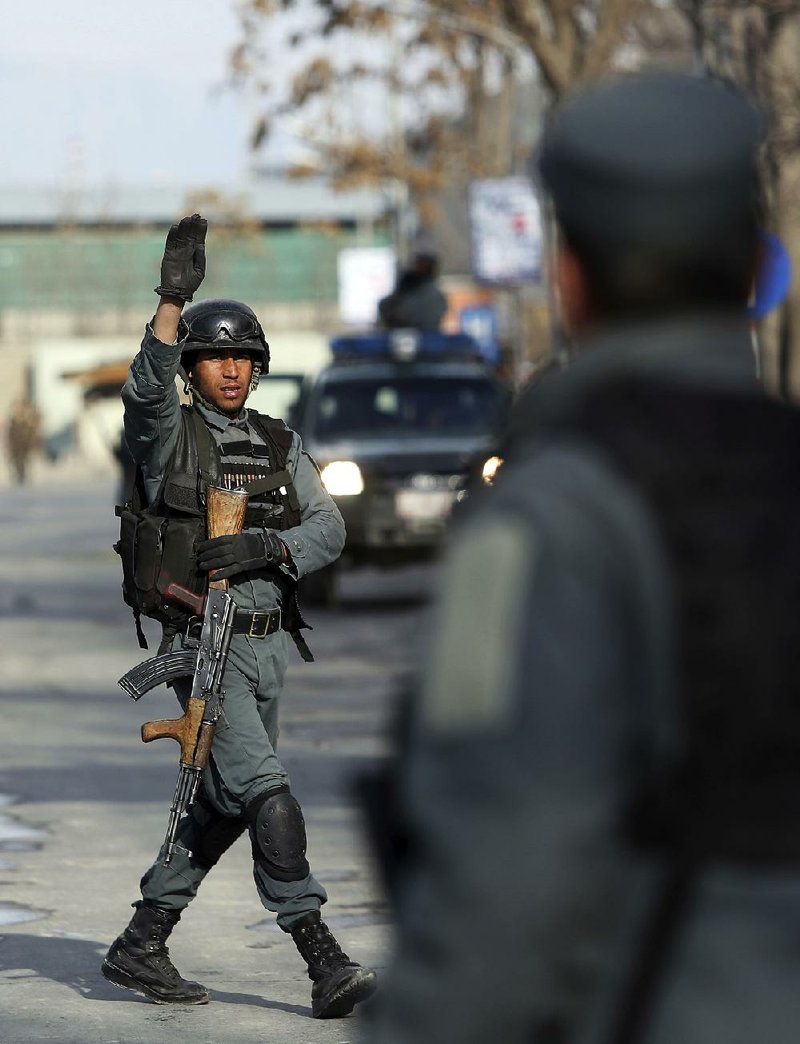KABUL, Afghanistan -- Gunmen stormed the main military hospital in Kabul on Wednesday, killing at least 30 people and wounding dozens as Afghan forces struggled for seven hours to evacuate the crowded facility and end the assault.
As the war in Afghanistan has escalated and security forces suffer high casualty rates, the 400-bed Sardar Daud Khan hospital in Kabul, the capital, remains the main care center for wounded army soldiers. The hospital is busy on any given day, as the bodies of those who are killed around the country are also taken there for their families to pick up.
The Islamic State extremist group claimed responsibility for the attack on the hospital through its Aamaq news agency, according to the SITE Intelligence Group, hours after the Taliban denied involvement.
Last year there was a record number of civilian and military casualties from fighting that is raging across the country. Much of the fighting is waged by the Taliban, an insurgency emboldened by territorial gains in recent years, but a group affiliated with the Islamic State has also been trying to gain a foothold in the east of the country.
After repeated operations by Afghan forces and airstrikes by the U.S. military, the group has been reduced to about 700 fighters, according to U.S. military officials. Despite that, the Islamic State, also known as ISIS, has claimed responsibility for an increasing number of suicide missions in Kabul, the one on the hospital being the most sophisticated. The group's deadliest attack was at a peaceful protest last summer, which left at least 80 people dead.
The attack on Wednesday began about 9 a.m., a busy time for the hospital's staff, with family members visiting loved ones.
The attack began with a suicide bomber on foot detonating his explosives at one of the hospital's rear entrances, after which other attackers, believed to number four, entered the building.
Maj. Gen. Dawlat Waziri, the spokesman for the Afghan Defense Ministry, said the attackers were wearing medical uniforms.
"Thirty people have been killed, including hospital personnel and patients, and more than 50 have been wounded," Waziri said after the attack ended around 4 p.m.
Sediq Sediqqi, the spokesman for the Afghan Interior Ministry, said all the attackers involved in the assault had been killed.
Fazel Mohammed, 46, who works in the neurology department on the fifth floor, said he had been on duty the night before and was waiting for the morning hand-over when the initial explosion occurred.
"I heard firing in the corridor of the fifth floor, and I saw gunmen shooting everyone they saw," Mohammed said. "They hit one of our colleagues with a bullet in the chest, and they fired at a girl who was a relative of a patient. Then they shot a cleaner and then another guy."
Mohammed said he and others tried to lock themselves in one of the rooms, barricading the door. They stayed in the room for three hours before security forces rescued them.
"We understand that on the second, third, fourth and fifth floors, casualties were very high, because everywhere was full of blood," said Dr. Akramuddin Kakar, who was stuck in the hospital for much of the seven hours. "The attackers killed whoever they saw in the main building of the hospital."
Afghan President Ashraf Ghani condemned Wednesday's attack during an address in honor of International Women's Day, calling it "an attack on all Afghan people and all Afghan women."
The Foreign Ministry in neighboring Pakistan condemned the Kabul attack, describing it as a "heinous terrorist attack" and expressing Islamabad's condolences to the victims.
The United Nations also condemned the attack, asking all parties to respect medical facilities.
"On behalf of the U.N. humanitarian agencies, I strongly emphasize that medical facilities, personnel and those receiving treatment must never be placed at risk and under no circumstances be subject to attack," Adele Khodr, the U.N. interim humanitarian coordinator for Afghanistan, said in a statement.
Information for this article was contributed by Zahra Nader and Jawad Sukhanyar of The New York Times and by Rahim Faiez and Amir Shah of The Associated Press.
A Section on 03/09/2017

